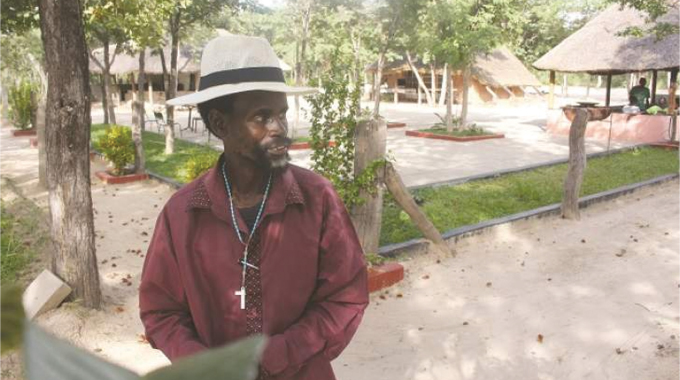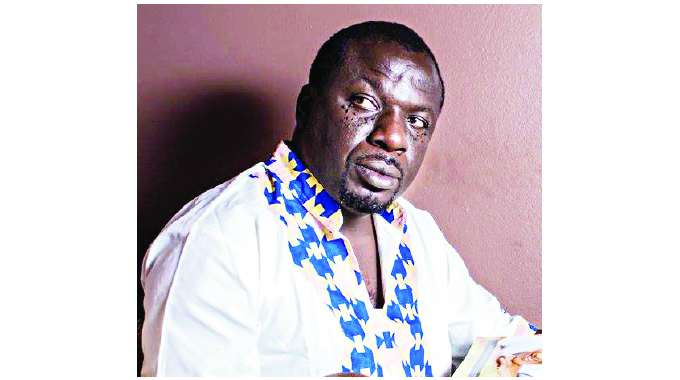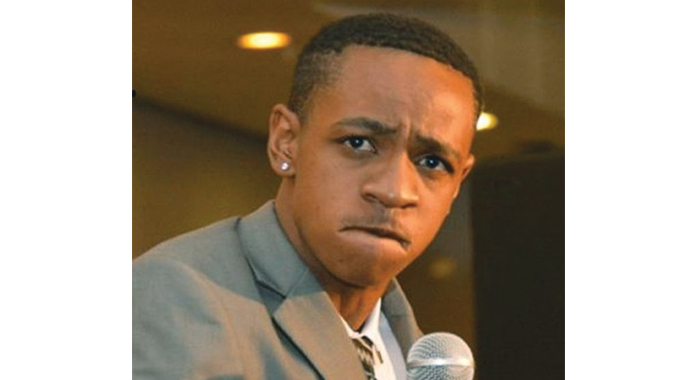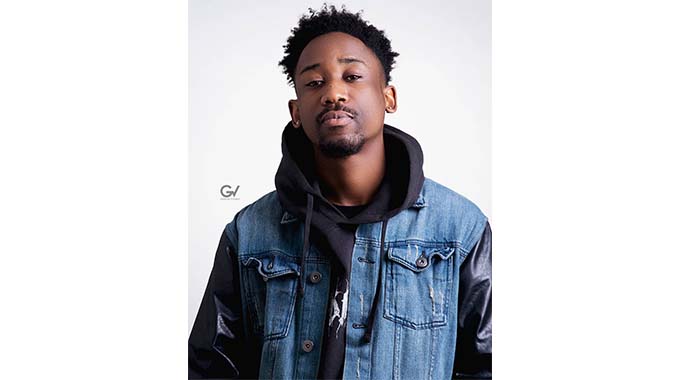
The Sunday News

Bruce Ndlovu, Sunday Life Reporter
CONT Mhlanga says that the last artiste whose burial that Amakhosi Cultural Centre helped organise and fund was Beatar Mangethe.
Mangethe was an Amakhosi Cultural Centre alumnus, one of the greatest stars it ever produced, and a one-woman entertainment juggernaut who single-handedly seemed to have mastered most of the mainstream art forms taught at the famed arts nursery.
Whether on stage, or on the small screen, Mangethe excelled, taking up a number of roles that are still embedded in Zimbabweans’ minds. As the final act of her short 32-year-old life, she had even become one of the country’s most famous music stars.

Raisedon Baya
However, it was not because of her boundless talent that Amakhosi made her the last artistes that the institution helped bid farewell to. Mhlanga remembers how, for years, the arts centre had shouldered the financial burden of the health and funeral costs of artistes under its care, as they refused to pay for a scheme that had been negotiated with eager service providers. According to Mhlanga, artistes would take any money deducted from their earnings as theft.
After Mangethe, the administration at Amakhosi felt it had been bled dry by artistes that did not want to meet their end of a mutually beneficial bargain.
“As Amakhosi we had to go out of our way, we had to negotiate with funeral policy providers, health insurance providers and even ambulance service providers. All of them came forward for a very affordable fee. At the end of the day, it became the responsibility of Amakhosi to pay those insurers, as the artistes themselves did not want to pay. If you deducted as much as 50 cents, they would cry and say you have stolen their money for their enjoyment. It was as if you had taken hundreds of dollars to go to the nightclub. Eventually after paying for a lot of medical and funeral expenses, I think the last one was Beater Mangethe, we had to shut it down,” he said.

Amakhosi Cultural Centre
Mhlanga said that through the years, efforts have been made to encourage artistes to make sure that their health comes first, as their bodies were their source of income. Such efforts, he said, had yielded temporary fruit at best.
“When we diversified into television productions, we had television crews and actors and we had Micah of Amakorokoza who was sick for a long time. He got bed-ridden and there wasn’t even food at home and personally I had to call all actors and all crews and I said you can’t neglect yourselves this way.
I said come together and have an actor’s equity, a union where you subscribe to all forms of health and medical insurance. They came together and they formed a screen actors’ equity, I think it was headed by Sarah Mpofu, and they worked hard to put together support for Micah for a long time. Thereafter, none of them wanted to put together a cent for an actor’s equity.
“Efforts have been made, both at national level and at organisational level and artistes themselves don’t respond.
When you engage them, they will give you the answer that they are not making enough to take care of themselves.
My education to them always was, if you’re a performer, your first instrument is your body. That means the most important instrument is your body and you have to look after it. The only way you look after it is healthy food, staying away from alcohol and smoking while putting away that 50 cent for when you’re not able to go on stage,” he said.

The late Richard Phiri aka Micah in the Amakorokoza drama
However, the recent death of another Amakhosi prodigy, Clive Chigubu, showed the showbiz industry’s ability to mobilise and join hands even at short notice. Nonetheless, the intervention proved too late as the legendary funnyman passed away before all efforts made could bear fruit. While Chigubu had the misfortune of suffering from two costly and debilitating illnesses in the space of five years, the same cannot be said of all artistes. Mhlanga said even at a national level, artistes shunned health and funeral policies.
In October 2010, Cell Assurance Company and the National Arts Council of Zimbabwe (NACZ) launched the Cell-ebrity Funeral Policy, of which Cell Foundation Group CEO Isheanesu Makuzwa said: “celebrities should have celebrity burials and this was just a step towards it”. It would not be long before that plan also collapsed.
“We escalated the issue and approached NACZ to take the issue national so that they approach policy providers on behalf of artistes and they did. They put together a great package that you would not get anywhere else in this country. Did the artistes respond nationally? No, they did not. Until the insurers withdrew and that also collapsed.
Sometimes it’s sad because they can’t learn. You have one artiste dying a pauper’s death then others making money and forgetting about their own welfare. Sometimes you have to force them to go to a gym. You can’t go home, eat, smoke, drink, sleep then come to the theatre tomorrow.

The late Clive Chigubu
Your body is the business. You have to eat well, go to the gym and have health insurance then run out of money for everything else. That’s how it should be for an artiste. If you can’t do it alone, come together and become an institution.”
The Zimbabwe arts industry’s lack of any structures or unions looking after the welfare of artistes make the possibility of organising a collective health or funeral policy for artistes a distant one. Raisedon Baya told Sunday Life that this, doubled with the meagre and inconsistent income that artistes get, made it hard for them to come together and build a structure under which they could all take shelter on rainy days.
“My personal opinion is that we really can’t blame the artistes. Most of our artistes are not getting regular income, they get something now and go for four to five months without getting something coming their way regularly. It then becomes difficult to pay premiums.

National Arts Council of Zimbabwe (NACZ)
Secondly, as for the NACZ’s US$50 one, it became an issue of the sector being disorganised firstly and the issue of attitude because a lot of artistes are working and living as individuals. So, because of this we rarely meet outside of sad gatherings and those are issues that affect us in the end,” he said.
Baya said that the burden and expectations of “celebrity” also meant that artistes could not seek help when they needed it.
“For example, with Clive the idea was to help but I remember at the beginning, Ntando told us he was sick but he also told us Clive did not want people to know.
So, what happens is that when people get to know it will be too late because we move around with this burden of celebrity and in the eyes of the public, we are supposed to have things, yet we don’t have things. So, it’s a real burden that ends up stressing real artistes because you think ‘I’m walking but my neighbour has seen me on TV or the newspaper.’
Asking why artistes don’t have a policy is like asking an unemployed person the same because the money that they get rarely sustains them. So, sometimes you open a policy and then three months later it lapses because you cannot pay. So, as we hammer artistes, we must always remember that they’re carrying this burden of people thinking they have stuff when they don’t,” he said.
With the arts lacking any sort of organisational structure, rapper Asaph said he had thought it prudent to cover himself without waiting for the arts industry to get its own house in order.
“Artistes have not come together to form some kind of union or a type of collective that covers each other in times of emergencies like health or other life and death situations where big resources need to come together.

Asaph
When medical expenses come knocking that’s when you see who the real mbingas are. To be honest artistes have been to left to deal with that on their own. Health, mortality, death, I won’t even lie sometimes these are the last things on artistes’ minds.
“Sometimes artistes have this thing of believing that they can live forever, so I’m sure that it’s something that doesn’t cross a lot of minds. That is unless this is a principle that was instilled on them by their parents or if you’re getting sponsored by a company that does life insurance. Other than that, most people have to fend for themselves.
Personally, I have my own medical aid and insurance policy that I had negotiated before even getting on the label.
It’s something that I had already taken care of on my own and I think that is something that we have to do right now as artistes,” he said.



